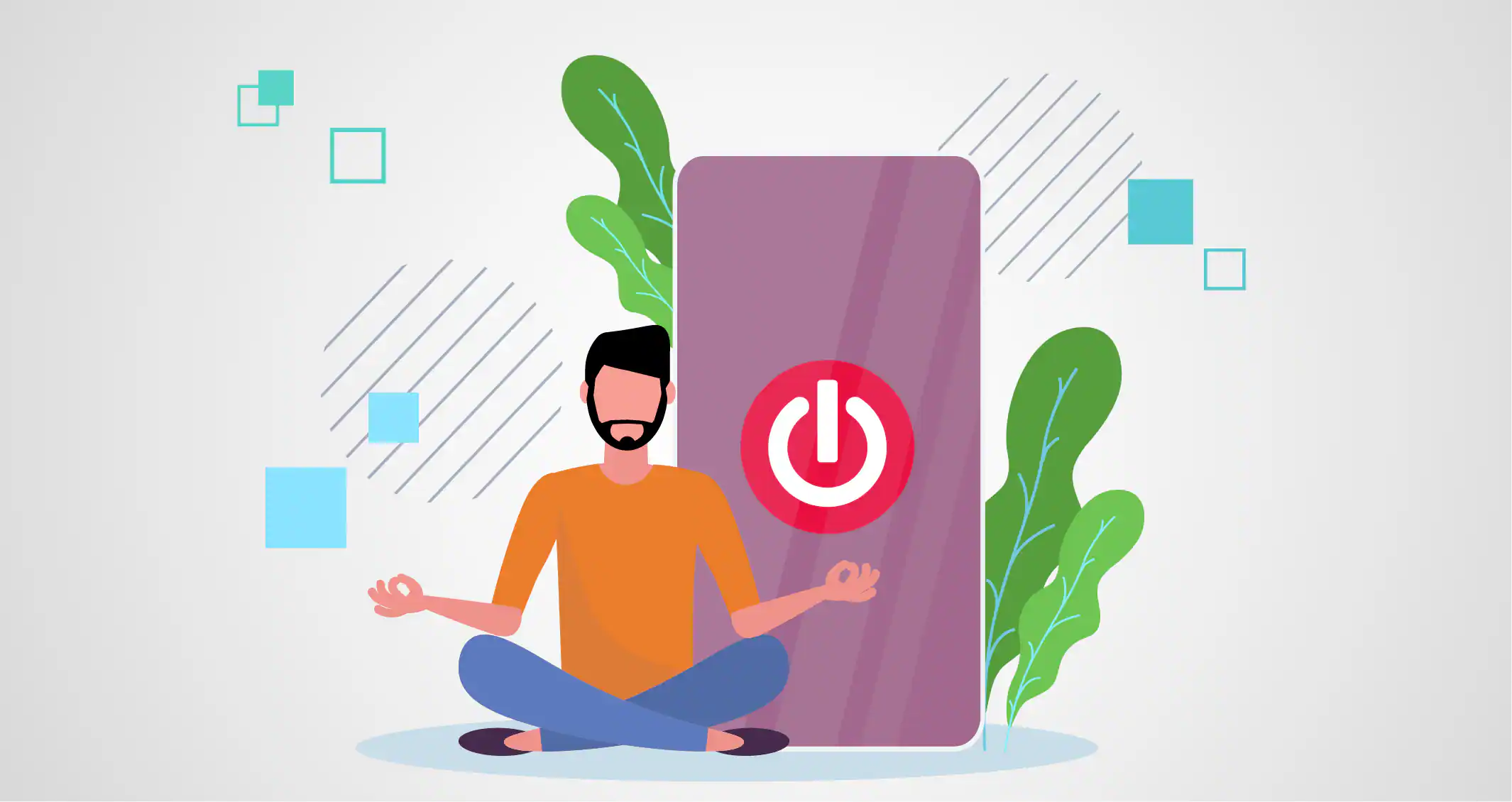Nearly all of us have a love-hate relationship with technology. We like technology, and in many cases need it; we use it to collaborate with our work colleagues, stay in touch with old friends, and entertain ourselves when there’s nothing else to do.
But at the same time, endless interactions with technology can make us feel empty and alone – and addictive technology usage patterns can interfere with our ability to lead a healthy life.
If you find yourself completely absorbed by technology, or if you feel like something is generally wrong in your life, consider going on a digital detox.
What exactly is a digital detox and how is it going to help you?
What Is a Digital Detox?
The idea of a digital detox is simple: you stop using technology for a defined period of time.
There are different ways to approach this, and no two people are going to have an identical approach. For some, a digital detox means temporarily deleting all social media apps and refraining from reading online news for a week. For others, a digital detox means a month-long camping trip with no access to computers, phones, or other types of technology.
Obviously, more intensive digital detoxes are going to have a more pronounced effect, but they’re also harder to manage in the context of modern life. Start by doing whatever you think is reasonable.
The Benefits of a Digital Detox
There are many benefits of going on a digital detox:
- More time for important projects and hobbies. Think about how many hours every day you interact with technology, and how many extra hours you’ll have once you temporarily stop using it. You can upgrade your house with a new fireplace mantel. Then, you can spend more time reading by the fire. You’ll have more time for exercise, preparing healthy meals, and working on your passion projects. You may not realize just how much time you’ll have to spend on things you truly enjoy until you actually put the phone down.
- More quality time with family and friends. Similarly, you’ll have more quality time that you can spend with family and friends. Yes, social media is good for keeping in touch with the people in your social circle, but it’s even more valuable to spend time with them in person. This is your chance to rebuild or reinforce your best relationships.
- Improved mood. Many people don’t realize how much interactions with technology can damage their mood. Social media and mainstream news organizations are motivated by outrage and other negative emotions; users are much more likely to engage with content if it makes them upset. Accordingly, it’s no surprise that many of us end up being in a worse mood after scrolling on our phones for an hour or two. Once you go on a digital detox, you’ll see the world a lot differently.
- Focus and memory. Excessive use of technology can cognitively impair you, harming your focus, mental clarity, and memory. After a few days of limited technology use, you’ll see a remarkable improvement in your ability to concentrate, your mental productivity, and even your short-term memory. Once you experience this shift, you may be apprehensive about ever going back.
- True perspective. Technology and digital media have a tendency to distort our perspectives on the world around us. If you spend too much time reading the news and following politics, you might end up believing that we live in a tortured hellscape that’s filled with death and destruction; but once you put down the phone and start living in the moment, you’ll realize things aren’t so bad.
- Awareness and direction. One of the best benefits of a digital detox is that it provides you with awareness and direction for your future. After a week of better personal interactions, a better mood, higher productivity, and the elimination of that persistent empty feeling, you’ll suddenly realize the root cause for a significant chunk of your daily distress. From there, you’ll be able to accurately assess your priorities and change your habits for the better.
- Controlled reentry. The average person spends about 2.5 hours on social media every day. Most of us would agree that this is too much; but at the same time, it’s also unreasonable to suggest that social media is purely wasteful, or that no one should spend time on it at all. After your digital detox, you can set your own parameters for reentry; for example, do you want to spend only an hour a day online?
Getting Started
There are no hard rules for how to manage a digital detox, which means you can set your own standards. Start by doing whatever you’re comfortable with, whether that means completely eliminating technology or just minimizing your use of it. You’ll be glad you did.

Talha Ali is your tech generalist, covering a wide spectrum of topics within the ever-evolving world of technology. With a curiosity for the latest innovations, industry trends, and breakthroughs. Whether it’s hardware, software, emerging technologies, or the intersection of tech with daily life, Talha’s articles provide readers with a well-rounded perspective on the dynamic landscape of the tech industry.

